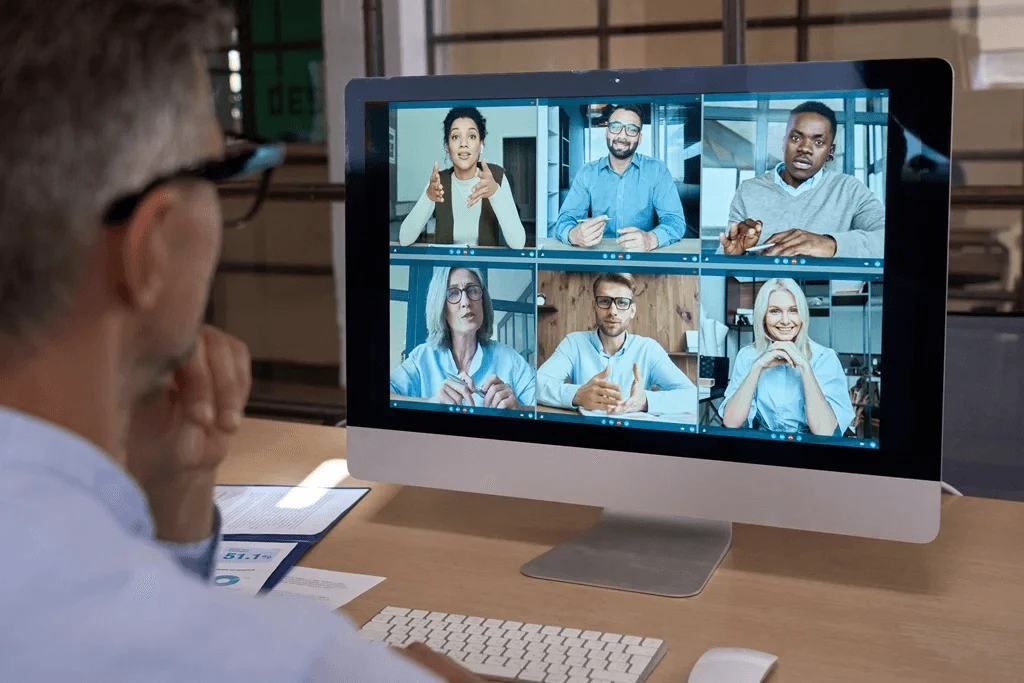Office etiquette is crucial for fostering a productive and respectful work environment. It includes behaviors like effective communication, professional appearance, and respectful conduct, all of which help build strong relationships and boost job satisfaction. Whether you’re new to the workforce or a seasoned professional, mastering these principles ensures smoother interactions and supports career growth.
Why does this matter? Simply put, just as a job interview makes a lasting impression, adhering to office etiquette is equally important in daily work life. Demonstrating professionalism and respect promotes collaboration, strengthens workplace dynamics, and contributes to long-term personal and organizational success. So, for job seekers looking for the ideal workplace and those already thriving in one alike, office etiquette fosters a professional and respectful environment.
Related Article: Basic IT Job Search Tips to Remember
What is Office Etiquette?
Office etiquette refers to the accepted behavior and norms within a professional environment. It encompasses how employees interact with one another, manage their time, and present themselves in the workplace. Good office etiquette includes three main aspects:
- Communication: Using clear and respectful language, listening actively, and providing constructive feedback during meetings or phone calls.
- Appearance: Dressing appropriately according to the office dress code, which contributes to a professional image.
- Interaction: Demonstrating respect for colleagues’ personal space, time, and opinions.
Understanding and practicing proper workplace etiquette will enhance workplace relationships and productivity. Respecting boundaries, managing personal calls during working hours, and maintaining a professional demeanor help create a smoother work environment.

The Importance of Office Etiquette
Maintaining good office etiquette has several benefits, each of which contributes to a better work environment:
Creates a Positive Work Environment
When employees follow office etiquette rules, it helps avoid misunderstandings and conflicts, fostering a collaborative atmosphere. Showing consideration by arriving on time for meetings, being attentive during virtual or in-person conferences, and respecting personal life boundaries can make a big difference.
Enhances Professional Image
Adhering to office etiquette, including observing the company’s dress code, contributes to a professional image, which is crucial for career advancement and networking. The way you present yourself, from your attire to your body language, speaks volumes about your respect for the organization and your role in it.
Improves Team Collaboration
Respectful behavior and effective communication facilitate smoother interactions and teamwork, leading to better project outcomes. Maintaining professionalism when handling personal calls, being mindful of others’ time, and ensuring timely responses in digital communication helps foster trust and respect among team members.
Related Articles:
Establishing — and Achieving — These 10 Professional Goals for Work
Three Great Reasons to Pursue a Career in IT
Key Office Etiquette Practices
Key office etiquette practices create a foundation for professional interactions and foster a harmonious workplace culture. By promoting mutual respect and understanding, they enhance individual performance and strengthen team dynamics.
Effective Communication
Effective communication is at the heart of good office etiquette. Here’s how to ensure your communication is respectful and clear, whether in person or through digital platforms:
- Be Clear and Concise: When speaking or writing, ensure your message is straightforward and easy to understand. Whether you’re discussing work assignments or providing feedback, clear communication helps to avoid misunderstandings.
- Active Listening: Listen attentively when others are speaking. Show engagement through body language, eye contact, and appropriate feedback. Whether you’re in conference rooms or during virtual meetings, this demonstrates respect for others’ opinions.
- Constructive Feedback: Provide feedback in a positive and constructive manner, focusing on solutions rather than criticism. This ensures that you maintain good working relationships, even in difficult situations.
Professional Appearance
Your appearance impacts how others perceive you, so it’s important to maintain a professional image:
- Dress Code: Adhere to the office dress code, whether it’s business casual or formal. Your attire should be clean, neat, and appropriate for your role. Dressing according to your work environment not only reflects professionalism but also shows respect for company culture.
- Personal Presentation: Maintain good hygiene and grooming. Your appearance reflects your professionalism and respect for the workplace, reinforcing your commitment to the job and your team.
Respectful Behavior
Demonstrating respect for colleagues is crucial in maintaining a positive and productive office environment:
- Respect Personal Space: Be mindful of others’ personal space and avoid intrusive behavior. This is especially important in shared office spaces, where respecting boundaries helps maintain a harmonious work environment.
- Avoid Gossip: Steer clear of office gossip and speak negatively about colleagues, as this can undermine team morale and create unnecessary tension in the workplace.
- Handle Conflicts Professionally: Address disagreements calmly and professionally, focusing on finding a resolution rather than escalating the issue. This demonstrates maturity and helps to maintain a respectful work environment.

Navigating Office Etiquette in Different Scenarios
Navigating office etiquette in different scenarios requires an awareness of context and the nuances of interpersonal dynamics. Mastering these skills ultimately enhances professional relationships and contribute to a more cohesive work environment.
Meetings and Presentations
Meetings and presentations require specific etiquette to ensure they are productive and respectful:
- Participate Actively: Contribute to discussions with relevant input and stay engaged throughout the meeting. Arrive on time, and ensure you are prepared with necessary materials or insights to share.
- Respect Others’ Input: Listen to others’ ideas and feedback, avoiding interruptions. Everyone should have an opportunity to speak and contribute.
Email and Digital Communication
With the rise of digital communication, maintaining professionalism in emails and online interactions is crucial:
- Craft Professional Emails: Use a polite tone, clear subject lines, and proper formatting in your emails. Avoid using slang or overly casual language, as it may be misinterpreted in a professional setting.
- Maintain Privacy: Be cautious about sharing personal information and respect others’ privacy in digital communications. Avoid discussing personal life or sensitive issues that do not pertain to the workplace.
Office Etiquette for Remote and Hybrid Work
Remote and hybrid work settings present unique challenges for office etiquette. Here are some tips to navigate these scenarios:
For virtual meetings, always dress professionally and ensure a distraction-free environment during video calls. Mute your microphone when not speaking and use video conferencing features respectfully. Make sure you maintain eye contact and proper body language during the session.
On the other hand, clear communication with both in-office and remote team members is key to thriving in hybrid work. Given the work structure, ensure that remote work does not hinder team collaboration and productivity by being timely with responses and remaining proactive in your role.

Boost Your Work Ethic with the Proper Office Etiquette
Incorporating strong office etiquette into your daily routine is crucial for fostering a positive work environment. Clear communication, professionalism, and respect help create meaningful connections and enhance collaboration. By embracing these practices, you elevate your image and strengthen workplace relationships.
Ready to boost your IT career? Our IT resume writing services highlight not only your technical expertise but also your professionalism, ensuring your resume reflects the etiquette that will set you apart. Contact us today to kickstart your job search and make a lasting impression!





